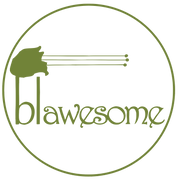I remember the days when folks were offended by labels. I was told in 1998 that if I described my son as having autism or being autistic, I was boxing him into a small space that would limit his potential or the way others would choose to support him or see him as a capable human. What I knew and understood at the time was that he was being labeled anyway, and that I’d rather replace the comments of “weird” or “wrong” with a more accurate description that would then reverse the responsibility of the reaction to his way of being onto the recipient of that experience.
I’ll share a story that I was told years ago that I think illustrates what I am trying to explain:
A man is riding on a subway with his three young children. They are on top of the seats, under the seats, running in the aisles, and being otherwise inconsiderate of the other passengers traveling quietly to their destinations. At one point, a fed up rider turns to the dad, who is sitting inactive and silent in his seat, and says “Are you going to do anything about your kids?” And the dad looks up and says “We are returning from the hospital where their mother has just died. What would you have me say to them?” At that moment, the energy in the subway car shifts. Instead of anger and frustration, the fellow travelers adopt a different body language and a collective spirit that offers not only thoughtful space and understanding, but kindness and compassion. Because now they have information. And that information changes everything.
I’ve always felt that way about Raimee. Autism is a defining part of who he is, how he engages with his environment, and of how he identifies as a human. And it gives me, and the world, a little bit of information that may help guide the way we acknowledge, perceive, and offer support to him along his unique journey.
And yet, I am lately, so very aware that labels can be dangerous things. They can box a person into a small space that gives others a sense of permission to claim that, because they may identify in similar ways, their path to acceptance is the only path. That, because they share a diagnosis, albeit a diagnosis that falls on a broad spectrum, they have the right to claim absolute and incontrovertible expertise in what is right for everyone who shares any space on that spectrum, whether they have the gift of articulating it or not; without respect to the way they know (or don’t know) that person and their lifetime of experiences. Their claims are often made without regard or any investment in the future happiness or ability of others who occupy a different space on the spectrum to navigate the world to the best of their ability, as well as to their loved ones who have given everything they possibly can to support their endeavors.These are pejorative and myopic philosophies that are disrespectful to everyone’s individual path and are harmful to the ways we grow and connect as an inclusive community. I have learned to be wary of anyone claiming to be the “voice” for an entire population.
Because really, the one and only true label we all share is human.
And isn’t that enough? Wouldn’t it be better if we just tried to channel a bit more of our energy towards being our best human selves and cultivate a practice of thoughtful acknowledgment of all the different ways we are each able to accomplish that goal? We are so lucky to have so many options.
I hope you have felt encouraged on your path. I hope that you have found your community to be a source of support and authentic love. I hope you have shoulders to lean on, conversations to learn from, and gentle experiences that have shaped your perspectives and nurtured a spirit of acceptance within you. I am so thankful to be a fellow traveler, and grateful to be able to grow Blawesome alongside you.

